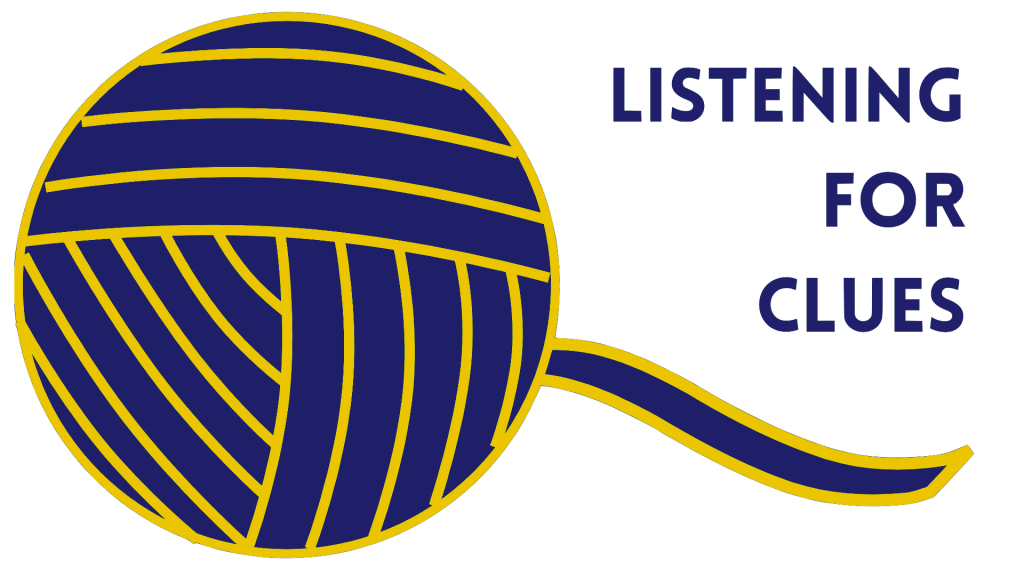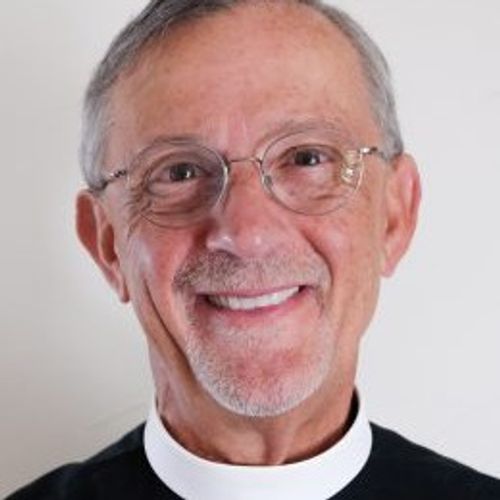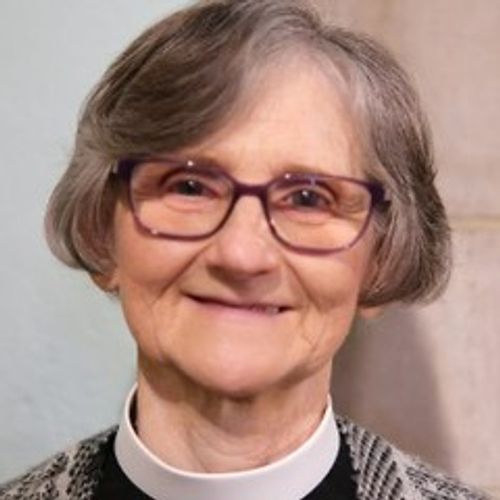Pathways to College for Refugees
Pathways to College for Refugees
We are pleased to welcome our guest Daniel Jacoby, who is Assistant Director of the Episcopal Refugee and Immigrant Center Alliance (ERICA), affiliated with the Cathedral of the Incarnation in Baltimore, MD. Daniel discusses his early experience with helping Afghan refugees gain admission to several Baltimore-area colleges to complete their education after fleeing Afghanistan’s Taliban regime.
Before becoming the Assistant Director of ERICA, Daniel had a career in teaching high school history. He worked in schools in Czechoslovakia, Finland and Israel -- and, for the previous 20 years, in Baltimore.
Topics Discussed:
00:00 Pathways to College
00:00 Introduction
01:03 How it started
04:40 How did colleges react?
06:36 Non-academic needs
08:28 Some stories
10:16 How has this affected you personally?
12:41 What has surprised you?
14:09 How can people help?
16:23 Any final words?
17:32 Thanks to all
Resources mentioned in this episode:
Listening for Clues is pleased to present our new series, "Good News!" featuring weekly conversations with people who are making a difference, large or small. We want everyone to know what they are doing, why they are doing it, and how. So, our listeners and viewers can experience the good news and go out and make a difference themselves. Listening for Clues invites you into conversations that discover clues, rather than solutions to life’s problems. Join the journey with Jon Shematek and Lauren Welch, Episcopal deacons, as we explore whatever lies ahead. Check our website Listening for Clues.
© 2025 Listening for Clues
Transcript
Welcome to Good News from Listening for clues.
Lauren:We are Lauren Welch and Jon Shematek, deacons in the
Lauren:Episcopal Diocese of Maryland.
Jon:And today we've got some good news for you.
Jon:We're going to be meeting our special guest, Daniel Jacobi.
Jon:Who is the Assistant director of ERICA, which is the Episcopal Refugee
Jon:and Immigrant Center Alliance.
Jon:That's a mouthful and hard to remember, but Daniel is a teacher
Jon:most of his professional life and is taught in several countries.
Jon:Czechoslovakia, Finland Israel, and a good piece of time right here in
Jon:Maryland, and you're here to talk about a special program, Pathways to College.
Jon:Welcome, Daniel.
Jon:We're glad to have you today.
Daniel:Great.
Daniel:Thanks for having me.
Lauren:We are very happy to have you, Daniel, and really excited to
Lauren:learn more about Pathways to College.
Lauren:So tell us how and why did it get started?
Daniel:So it didn't start with a program.
Daniel:It started with the need of a particular Afghan woman who arrived.
Daniel:To ERICA.
Daniel:She needed housing, she needed access to medical care, and she was moving
Daniel:from another part of the country.
Daniel:And like all refugee stories, it's a very long and complicated story.
Daniel:And when she came, she had all of these physical and practical, immediate needs,
Daniel:and the thing that she said over and over again is, She has to finish her education.
Daniel:She was in college when the Taliban took over and she wanted to finish her degree.
Daniel:And she said, education will save my life.
Daniel:And so that is what we started doing, was helping her to get
Daniel:into a university and to find something that would be affordable.
Daniel:And we went to several universities not knowing what would, what would happen.
Daniel:And since I've had three children get into college.
Daniel:I know it's a long and unpleasant process and or at least it was for, for me.
Daniel:And, but all the colleges were very receptive and Goucher College
Daniel:gave her a full scholarship.
Daniel:Wow.
Daniel:Wow.
Daniel:Seemed unlikely and utterly wonderful.
Daniel:And so she's currently a student at Goucher and will be finishing this year.
Daniel:And then that seemed amazing.
Daniel:And then , we learned of a family who had several children who were
Daniel:in college or were about to start college and they were living in the
Daniel:extended stay hotels by the airport.
Daniel:. And we went down and introduced ourselves and we tried to recreate what
Daniel:had happened with the first person.
Daniel:And Notre Dame of Maryland gave two of those young women full
Daniel:scholarships, which also seemed just unlikely and, and very wonderful.
Daniel:What Erica was adding then was they needed.
Daniel:Intensive academic English.
Daniel:Their English was very good, but not quite American university level.
Daniel:And so Erica raised some money and then supported them
Daniel:through that English program.
Daniel:And they're also at Notre Dame of Maryland.
Daniel:And so then it started to become a program.
Daniel:And the form of the program is that ERICA raises money to pay for
Daniel:the intensive academic English.
Daniel:It provides pro bono college guidance from pro bono college guidance counselors who
Daniel:have been very generous with their time.
Daniel:And then guidance through, through the process of finding a place to go to
Daniel:college and also building relationships with the universities and colleges in
Daniel:the area to try and make that path.
Daniel:A little easier if you're a displaced person.
Daniel:It's, complicated.
Daniel:If you're from Maryland it's, it's very complicated if you are from
Daniel:Afghanistan or some other country.
Daniel:So learning English is one thing.
Daniel:Learning words like FAFSA is, you know, another level.
Daniel:So that was the origin of the program.
Jon:Wow.
Jon:And so it sounds like it's pretty complicated.
Jon:To kind of get them to, navigate through the system.
Jon:You talked about, even us as, and for us as parents and, and
Jon:grandparents of college students now we, . Definitely empathize with that.
Jon:Did the colleges open their doors to you right away, or did you have other
Jon:barriers that you had to overcome?
Jon:Was this, cause this was an unknown need, I'm guessing?
Daniel:Yes.
Daniel:So one is just the practical matter of transferring credits
Daniel:from a foreign country.
Daniel:Another is, is making sure that the immigration status of the students
Daniel:will allow them to get federal funding.
Daniel:And these, these topics, they go into bewildering levels of weeds very quickly.
Daniel:So I apologize if that happens.
Daniel:But questions like who gets in-state tuition and who does
Daniel:not get in-state tuition, who is eligible for in-state tuition?
Daniel:There's an issue we're having right now where a student has a.
Daniel:Temporary Protected status, which he applied for, and also came here on,
Daniel:has O A R stamped in his I 94, which means he's here under Operation Allies.
Daniel:Welcome.
Daniel:Does that spell it?
Daniel:Anyway, so one of those statuses means he can get FAFSA and the other status
Daniel:means he cannot get FAFSA, so, so one gets funding, one doesn't get funding.
Daniel:Oh, wow.
Daniel:And how is that?
Daniel:You know, that's a, matter to communicate between the department of
Daniel:Homeland Security and the university, and then just the bureaucratic
Daniel:complexity that all institutions have.
Daniel:But I have found all colleges we've talked to either can help
Daniel:and do, or they want to help.
Daniel:They're constrained by finances or, or the timing of it.
Daniel:So one university their, main group that they want their financial aid
Daniel:to go to are students from Baltimore City who need financial aid.
Daniel:So that's a wonderful thing.
Daniel:But that, that means if you're a refugee that doesn't fit in
Daniel:. One of the the pathways candidates
Daniel:more weeds, but Medicaid doesn't pay for redoing dental work.
Daniel:And this person had bad dental work in Afghanistan and so it was a $4,000 bill.
Daniel:Wow.
Daniel:And like that's just, and, but it's your teeth and you need to, you need to chew.
Daniel:And so I just asked my dentist over in Pikesville, , and she said, sure.
Daniel:Just have him come over on Saturday.
Daniel:And that was surprising and wonderful.
Daniel:And he got, he showed up and they just did it for free, or there was another
Daniel:person who was an Ethiopian woman and she had a very complicated situation,
Daniel:but one of her problems was tax and getting taxes and how to do that.
Daniel:And I asked my tax guy, cuz I'm certainly not the person to go to for tax advice.
Daniel:And he said, sure.
Daniel:Just have her, have her call.
Daniel:And so I found, People to be generous.
Daniel:That's good news.
Jon:Yeah.
Jon:If you ask, right?
Jon:Is that the best news?
Jon:Just ask.
Jon:Just ask.
Jon:Yeah.
Jon:Yeah.
Daniel:And asking personally, so, you know, we have to raise money for Pathways
Daniel:and we could use a quarter of a million dollars, but just asking, you know,
Daniel:on this podcast, it might not arrive.
Daniel:But if I find individual people and over time, People share what they can.
Daniel:It will, it will slowly build.
Daniel:It has been so far.
Daniel:Yeah.
Lauren:And people share when they hear stories.
Lauren:When you share the stories of the people that you're asking for.
Daniel:Yes.
Daniel:And that's the most powerful thing that, that we have.
Daniel:I mean the, the currency of this whole enterprise is really gratitude.
Daniel:Yes.
Daniel:Different forms of gratitude.
Daniel:. But you do hear just horrendous stories
Daniel:trying to evacuate from Afghanistan.
Daniel:I don't know if you remember in, in 2001, there was a bomb at one of
Daniel:the gates of the Kabul airport and.
Daniel:They had gone through, but their parents hadn't gone through yet.
Daniel:And because of that bomb, they weren't killed, but they're still
Daniel:in Afghanistan and those three got out, but their parents didn't.
Daniel:Those kinds of stories are, almost unimaginable or I guess
Daniel:at some level it is unimaginable.
Daniel:But then there are other stories.
Daniel:Of, you know, people just living their lives in a new circumstance,
Daniel:and, and adjusting to a new culture and how people do things.
Daniel:For example, one couple, they arrived and they was late October, and so
Daniel:they're, they're from Afghanistan.
Daniel:From the Muslim world and culturally Afghan and, and some children arrived
Daniel:at their door on the 31st of October and they, oh my goodness, had costumes on.
Daniel:And he said they opened bags that had candy in them and
Daniel:she said, thank you so much.
Daniel:No, you don't get candy from us, you give candy to us.
Daniel:And she said, really?
Daniel:Yes.
Daniel:And she said, I have some chocolate, is that good?
Daniel:They said, yeah, that'd be good.
Daniel:You know, stories like that are also, you know, it's a wonderful complex
Daniel:mix, but the task of Pathways is to help people get where, they're going.
Daniel:I wouldn't want to use someone's story to further the program, although
Daniel:at some level you, you need to...
Jon:well, it makes it real for people, doesn't it?
Jon:I mean, if they hear a story that sounds true and it's coming from the heart.
Jon:Right then, then it becomes much real.
Jon:So , how does this whole thing affect you personally, Daniel?
Daniel:So this is one of the, the three kind of main areas at, at Erica.
Daniel:I'm, I'm trying to learn enough immigration law to be useful to get.
Daniel:Some kind of partial accreditation from the, from the DOJ.
Daniel:Another is, is all, all the things that, that very small nonprofits do.
Daniel:You know, raising money and organizing things and f figuring out where the
Daniel:receipts went and that kind of thing.
Daniel:And I would say the most.
Daniel:Yeah, the most emotionally rewarding part is, is certainly helping individual
Daniel:people get to where they want to go.
Daniel:And so I think one of the difficulties is because I'm, I'm new to the nonprofit
Daniel:world and I'm a, I'm from the school world, and so there's a clear structure
Daniel:to schools, even though of course, teenagers are inherently unpredictable.
Daniel:But, you know, on a Tuesday where you're supposed to do and what your
Daniel:responsibilities are and where you should, where you should go, and you
Daniel:know, there's a, there's a structure to that, but in this world, it's,
Daniel:it's much more free flowing, certainly in terms of when things happen.
Daniel:And how things happen.
Daniel:And so it's been an adjustment to know when I'm not supposed to be doing things.
Daniel:And also, you know, the need is so gigantic and I can, I can help
Daniel:who I can help and we all need to decide what the limits of that are.
Daniel:But that's, that's been the difficult part.
Daniel:And it's just very, it's, it's enormously satisfying to help, you know, to
Daniel:gladden the hearts of people around us.
Daniel:You know, we don't have much time and it's good to be useful to other people.
Daniel:And so that's, that's very, very satisfying to me.
Daniel:I hope to do this for as long as, as long as I can.
Jon:Oh, that's great.
Jon:That's great.
Jon:Do you have is there such a thing as a measure of success
Jon:in this kind of a situation?
Daniel:I think if, I mean, the whole point is to help refugees and
Daniel:asylum seekers get what they want.
Daniel:And the more of that, the better.
Lauren:Has there been anything that surprised you that you didn't expect
Daniel:I think the level of complexity of the laws that govern
Daniel:our immigration system, I always knew it was very complicated.
Daniel:Initially when I was just beginning, immigration lawyers seemed to speak
Daniel:an incomprehensible language, language and refer where the words seem to have
Daniel:meanings I didn't quite understand.
Daniel:And then after I've learned.
Daniel:More now, I can't speak without speaking in those terms.
Daniel:, Lauren: you're learning,
Daniel:too.
Daniel:Learning, a new language and, and that, has been, been surprising.
Daniel:I think , some parts of immigration law, are amazingly wonderful.
Daniel:So the Violence Against Women Act, for example, has enormously
Daniel:beneficial consequences for some of the most vulnerable immigrants.
Daniel:And then there are incredibly harsh parts, which well, all, which are just, which are
Daniel:much harsher than I thought they would be.
Daniel:Hmm.
Daniel:So if you, I'm into the United States without being inspected and
Daniel:you are expelled and then you come back in and then you're expelled
Daniel:again, then you are forbidden from coming to the United States.
Daniel:Forever.
Daniel:That's it.
Jon:So Daniel, I'm wondering although I don't know that anyone's gonna come
Jon:forth with the quarter of a million that you mentioned earlier, but people
Jon:may come forth with something or they may wanna learn more about this or the
Jon:Afghan situation for refugees or about ERICA, and how can they become involved?
Jon:How can they help?
Jon:What, would you say about that?
Daniel:I think the best way is to go to the Erica website.
Daniel:That's WWW.ERICA-BALTIMORE.ORG, Pathways to College is just one part of, of ERICA.
Daniel:But to go there to learn more about what ERICA is doing and if someone
Daniel:wants to volunteer, everyone has different talents and abilities and.
Daniel:To just get in touch with me and we'll see what we can do.
Daniel:So there are things that are very difficult to find,
Daniel:like an immigration lawyer.
Daniel:If there's an immigration lawyer or, or a college counselor or someone, or a
Daniel:social worker who's looking for a place to do something good, then please call me.
Daniel:But most people are not those, and the needs are tremendous.
Daniel:So needs like transportation, that's a real barrier for, for people in
Daniel:Baltimore, for ERICA participants.
Daniel:And so helping people get around, that's a real, that's a real help.
Daniel:But to get in touch , with me and, I can see what we can do.
Daniel:ERICA'S a very small, I mean, it is two people
Jon:and the two of you just do amazing, amazing work.
Jon:And, so we'll put the ERICA link in the show notes for people
Jon:that are listening or watching.
Jon:Certainly.
Jon:Is that the best way to reach you as well as through the ERICA website?
Daniel:Yes, or just to just send me an email,
Jon:Okay.
Jon:We'll put it in the show notes as well, if that's okay.
Daniel:That's great.
Daniel:It doesn't have to be a quarter of a million dollars to donate.
Daniel:Okay.
Daniel:As a friend once said, no gift is too small and no gift is too large.
Jon:That's excellent.
Jon:That's excellent.
Jon:Okay.
Jon:Very good.
Jon:Anything you'd like to add or Lauren and I absolutely wanna thank you for
Jon:taking the time to be here with us today.
Jon:This has been just great.
Daniel:I would just wanna express gratitude to all the various
Daniel:individuals and donors to ERICA and.
Daniel:college counselors who are helping out and universities and people who do
Daniel:policy, who have been willing to help.
Daniel:That's what makes it happen.
Daniel:So I just, I just wanna express gratitude to, for all of the supporters,
Daniel:and if you want to meet some of them on June 22nd, ERICA is having
Daniel:a celebration on World Refugee Day.
Daniel:It's on a Thursday evening.
Daniel:And there will be a silent auction and there will be music and food and
Daniel:celebration, and it'll be at the church, the cathedral of the Incarnation.
Jon:Cathedral of the incarnation in Baltimore.
Jon:I bet there's some neat things probably gonna be available
Jon:at the at the silent auction.
Jon:There always are.
Jon:So yeah.
Jon:Great.
Jon:We'll we'll put a little link in the show notes as well so
Jon:people can find that easily.
Jon:. Thanks once again, Daniel.
Jon:We appreciate your being with us today,
Daniel:Jon and Lauren.
Daniel:Thank you so much.
Lauren:Thank you.
Lauren:Bye-bye.
Lauren:And we now we want Jon, and I want to thank our viewers and our listeners.
Lauren:We couldn't do this without you.
Lauren:We are so grateful for your time.
Lauren:We ask you to comment ,to like, and to share the podcast or the, or the video on
Lauren:all your social medias if you would like.
Lauren:Until next time, peace and blessings.
Jon:Good news is being brought to you by listening for clues.
Jon:You can find us on our website, listeningforclues.com, our YouTube
Jon:channel, our Vimeo channel, and just about every podcast platform that there is.





